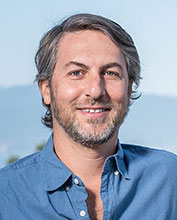
Agrarian Elites, Education, and Long-Term Development
Claudio Ferraz, UBC & PUC-Rio (with Pedro Américo, UBC)
We study the relationship between the political power of agrarian elites and the spread of mass schooling in the early 20th century in Brazil. We use a novel dataset on the occupational structure of the voting elites in 1905 and historical censuses to test whether places, where more voters belonged to the agriculture elite, invested less in schooling. We find that municipalities with a higher share of agriculture voters have a lower literacy rate in 1920 and these effects persist until the 1970s. In the long-run, municipalities that had a higher share of agriculture voters have fewer years of schooling and lower income per capita. We provide evidence that the supply of educational inputs is the main mechanism that explains long-term persistence.
Claudio Ferraz is a Professor of Economics at the Vancouver School of Economics, University of British Columbia and a part-time professor at the Department of Economics of the Pontifícia Universidade Católica do Rio de Janeiro (PUC-Rio). He currently serves as Scientific Director of J-PAL Latin America & Caribbean and as co-director of the Political Economy Network of LACEA and RIDGE. He is an honorary member of LACEA, a fellow of the Econometric Society, and currently an Associate Editor of Econometrica, Journal of Political Economy, Journal of Development Economics, and World Bank Economic Review. His academic research focuses on economic development, political economy, and public economics. In particular, he studies governance and accountability in developing countries and consequences for politics and public service delivery.

